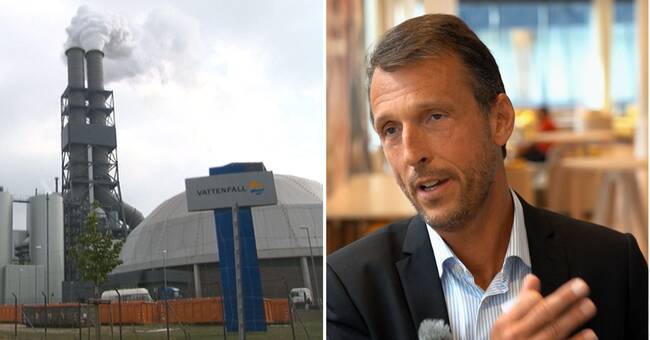State-owned Vattenfall's coal-fired power plant, Moorburg, would supply the German city of Hamburg with both electricity and heat, at a cost of upwards of SEK 17 billion.
But that did not happen.
Vattenfall's head of strategy, Andreas Regnell, was not at the company himself when the decision to buy Moorburg was made, but it is he we get to meet.
- At the time when the decision was made, coal was something that was acceptable in the German energy mix, Andreas Regnell tells SVT.
The costs are doubled
The coal-fired power plant would thus provide both electricity and district heating for the best economic outcome.
But there was almost no district heating from Moorburg because they were not allowed to lay pipes to Hamburg for the waste heat.
Vattenfall was also not allowed to cool the waste heat with water from the river Elbe.
Therefore, they had to build a cooling tower, budgeted for 2 billion, but which became more expensive.
There were also demands for a fish ladder for a quarter of a billion.
The final bill, after all the increase in costs, when the plant was launched in 2015, was almost twice as high as budgeted - SEK 30 billion.
The value is plummeting
- In Germany in particular, it has been decided that coal will be phased out by the year 2035/36.
A power plant like this typically has a lifespan of 30 to 40 years and now we get a lifespan of 20 years.
It affects the value very much, says Andreas Regnell at Vattenfall.
Falling prices for coal power compared to renewable energy have also contributed to a fall in value.
Vattenfall, which no longer wants coal power, has already written off more than half of the value of the coal power plant, SEK 17.7 billion.
Save what can be saved
Now Vattenfall is trying to save what can be saved with the help of German subsidies (reverse auction - see below).
Vattenfall can receive a maximum of less than SEK 3 billion.
After only five years of operation, 27 billion may soon be gone if the coal-fired power plant is shut down at the turn of the year.
- It is clear that it was a very bad deal, but at the same time you have to remember that the decision was made in 2006. The energy industry has changed a lot during the last five years, claims

